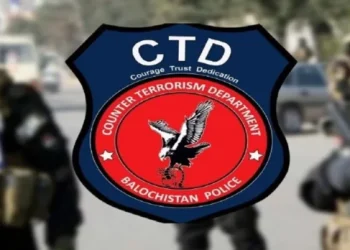Staff Reporter
UNITED NATIONS, : Amid Israeli strikes across the Gaza Strip that killed at least 23 people, the head of the UN agency for Palestinian refugees, UNRWA, issued an urgent call to “get international media into Gaza” to cover the conflict, in addition to those reporters trapped in the enclave.
“Palestinian journalists continue to do heroic work, paying a heavy price; 170 have been killed to date,” said UNRWA Commissioner-General Philippe Lazzarini. “The free flow of information and independent reporting are key to facts and accountability during conflicts.”
In his appeal, Lazzarini noted that in the more than 18 months since war in Gaza began, reliable reporting has been overtaken by propaganda and “dehumanizing” messages about the war.
Ajith Sunghay, head of the UN human rights office, OHCHR, in the Occupied Palestinian Territory, also expressed deep concerns about the dangers facing journalists there – although the situation “has always been very difficult”, he maintained.
“They have been subject to oppression in many instances we’ve recorded – killings and censorship and detention,” he told UN News, an international media web site. “But we have also recorded a massive spike in such operations – attacks, killings, detention and censorship – since 7 October 2023.”
Sunghay noted that OHCHR data indicates that 209 journalists have been killed in Gaza since 7 October 2023, the higher number reflecting all journalists killed on duty or at home.
The situation for journalists in the West Bank is also critical, with reports of arrested reporters receiving simulated beatings and threats of sexual violence against women journalists by Israeli authorities, the OHCHR office noted.
“Journalists are civilians and are protected from attacks under international humanitarian law unless they’re directly participating in hostilities,” Mr. Sunghay said, adding that Palestinian authorities were also reportedly responsible for “oppression” of media professionals. “The intentional killings of journalists is a war crime, and this is something that we have highlighted on several occasions.”
In a related development, other UN agencies issued fresh alerts about the mounting impact of Israel’s six-week-old decision to cut off all food and other supplies from entering the shattered territory. Fuel is also included in the embargo and supplies are dwindling, with “bakeries shutting, hospitals running out of medicine” and gasoline for generators to keep their machinery working, said UNRWA.
Since Israeli bombing of Gaza resumed on 18 March, about 500,000 people have been newly displaced “or uprooted once more”, said spokesperson for the UN Secretary-General Stephanie Tremblay. Her comments came as Israel’s defence minister reportedly said that troops will remain in Gaza’s so-called security zones indefinitely, along with Lebanon and Syria.


















